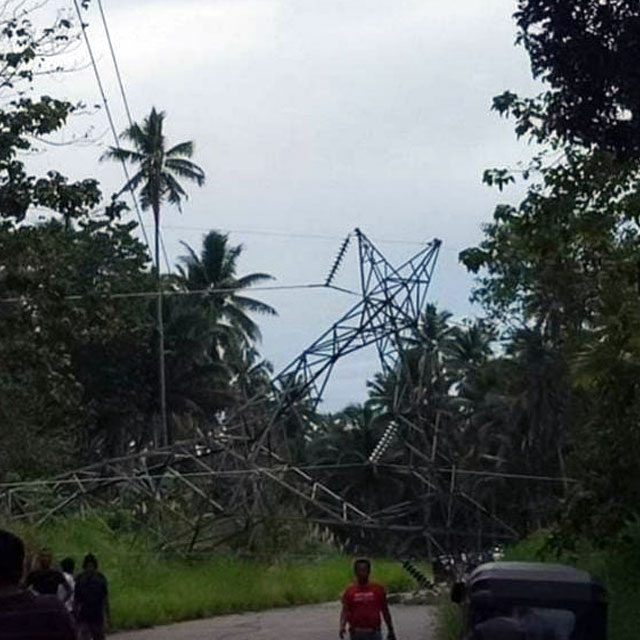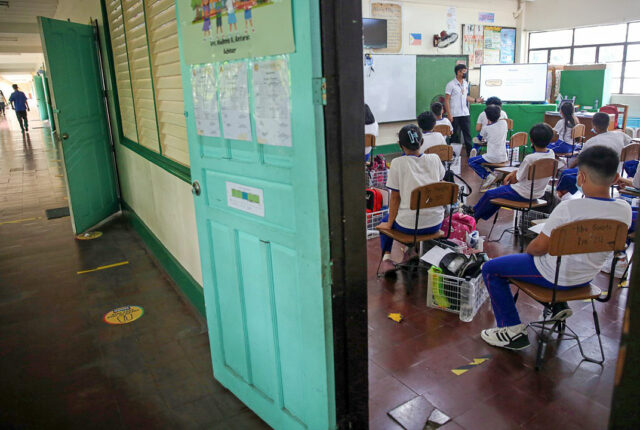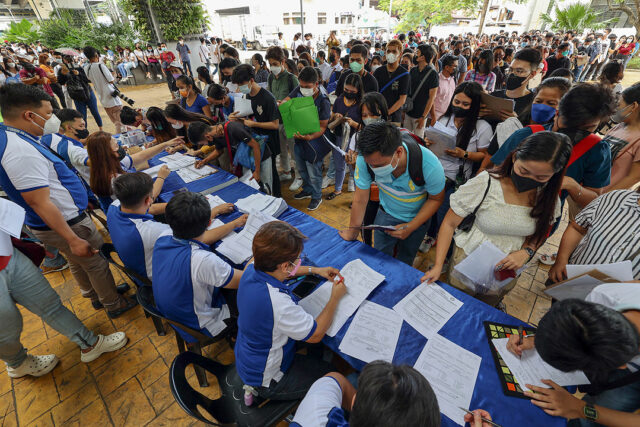(Part 2)
The developed world is due to suffer stagflation — high inflation and low economic growth — in the near future. Because of the high prices of commodities, partly caused by the Russian-Ukraine war — another recession is expected in the next three to four years. Even China has slowed down dramatically at a GDP growth rate of 3 to 4%.
Recent World Bank forecasts show that countries in the ASEAN will lead the world in growth with Vietnam and the Philippines still able to grow at 6 to 7%. India is expected to grow at even more than 7%.
I expect the economic difficulties to be faced by the developed countries in Europe, North America and Japan to actually benefit the information technology and business process management (IT-BPM) industry of the Philippines and India.
As costs of operations in the US grow because of the strong dollar, there will be greater pressure on their business enterprises to outsource non-core IT-BPM services to countries like the Philippines and India in which wages are much lower. This was actually the good news that I received when I attended a conference organized by the BPO-IT (business process outsourcing-information technology) industry association in Boracay from Oct. 20 to 23.
The main players actually expect a recession in the developed world to increase demand for Philippine BPO-IT services. They were so bullish that they expect to add 1 million more workers to their industry in the next six years. I considered their optimism quite realistic.
The Philippines serves countries spanning multiple time zones for contact center (CC) and business process (BP) delivery. It is actually providential that it is the US whose currency is getting stronger and stronger that continues to be the largest client because of cultural affinity and neutrality of the Filipino accent with the nature of work supported evolving from transactional to complex, such as customer experience management (chats and social media interaction, customer analytics, etc.).
Furthermore, especially after the health crisis during the pandemic, certain sectors such as clinical healthcare and nursing assistance have increased the share of North America. On the other hand, the Asia-Pacific region and Europe contribute the remaining BP services, with each having a share of 15%.
The IT-BPM sector is especially contributing to equitable economic growth because of its leveraging more and more cities and other municipalities outside of the National Capital Region in which income and employment opportunities have been overly concentrated to the detriment of the other regions.
Not only are IT-BPM enterprises locating in other major urban centers like Metro Cebu, Davao, Iloilo, and Cagayan de Oro. They are increasingly expanding to secondary cities and municipalities like Puerto Princesa, Tuguegarao, Dumaguete, Tanjay (Negros Oriental), Angeles (Metro Clark), and Capiz, among others.
In fact, there are provinces like Ilocos Norte whose medium-term strategic plan is to significantly improve internet connectivity so that they can attract locators in the burgeoning data center services.
Now that foreign enterprises can own 100% of telecom companies under the amended Public Service Act (PSA), greater competition in the telecom industry will actually benefit the move of the IT-BPM industry to the countryside.
One of the most promising prospects for improvements in telecom services presented at the Boracay industry conference was delivered by the representative of Elon Musk’s Starlink whose future operations in the Philippines can make internet connections even in the most remote islands of the country possible.
Another major contribution of the IT-BPM industry to Philippine equitable economic growth is the role it will play in the upskilling and reskilling of Filipino human resources.
The obvious challenge to the leadership of our Department of Education is to improve the quality of basic education which has descended to very low levels as evidenced by the very poor performance of the products of basic education in international achievement tests in reading comprehension, mathematical literacy, and scientific know-how. Our 15-year-olds are notorious for getting the lowest scores in these tests.
Another problem, however, is how to upskill, reskill and retool those who are already in the labor force among whom are those who are either unemployed (2.6 million in 2022) or underemployed (6.54 million). A whole session was devoted to the issue of talent development during the Boracay seminar. This is probably the biggest challenge to the industry in the next six years, considering that new job prospects for one more million workers in the industry are expected till 2028.
The Philippines has been delivering contact center management for end users in key demand markets since the late 1990s. Since then, this industry has undergone a fundamental shift from transactional to complex BP services, driven by the impact of automation and digital transformation that has been further accelerated by the pandemic.
Going forward, the continuing growth of the Philippines IT-BPM industry will depend on the country’s ability to ensure a continuous supply of talent and skills in demand, along with an enlightened and favorable environment and enabling physical infrastructure.
Given the high demand for contact-center services and business processes in the Philippines, there already exists a demand-supply gap in metropolitan areas such as Metro Manila and Cebu. The shortage is even more critical in the secondary cities like Davao, Bacolod, Iloilo, Angeles-Clark, etc. Furthermore, most of the talent is concentrated in the metropolitan areas with limited availability in the provincial locations such as Davao, Iloilo, Bacolod, etc. The shortage becomes more acute when it comes to such services as analytics, complex CC processes, Finance and Accounting, etc.
Special attention in talent development should be given to data and analytics services. The consumption of these data-oriented services has witnessed a very rapid rise globally with increasing investments from enterprises to transform internal as well as external processes, reduce time-to-insights, repair obsolete analytical models, and understand the fast-evolving customer behavior.
Some estimates show that global data and analytics services demand could grow by as much as 15–20% annually in the coming years. The pandemic further fueled the need for these services across different industries.
For example, while data modernization and data-driven customer experience enhancement continue to be major drivers of Data and Analytics (D&A) services adoption in the Banking, Financial Services and Insurance (BFSI) sector, the pandemic expedited the need for fraud and risk analytics use cases to prevent increasing fraudulent transactions and to analyze risks in insurance grants.
Likewise, the Healthcare and Life Sciences sector saw an unprecedented need to develop the life-savings drugs and provide timely treatment as a result of the COVID-19 crisis, a phenomenon that was met by the rapid adoption of data and analytics, Artificial Intelligence, and other cognitive technologies aiding in drug discovery, DNA genome sequencing, COVID-19 detection, and digital therapeutics.
In producing the talents required in these emerging fields of data and analytics services, the role of the institutions of higher learning is indispensable. The leaders of the industry should work closely with the Commission on Higher Education (CHED) and the top universities to develop the appropriate knowledge and skills among the most intellectually capable university students and graduates.
Fortunately, there are already doctoral, masteral and undergraduate programs on data sciences and business analytics being offered by the top schools such as the Asian Institute of Management, the University of the Philippines, De La Salle University, Ateneo de Manila University, the University of the East, Far Eastern University, Southwestern University (PHINMA), and the University of Asia and the Pacific (UA&P).
In the last mentioned (where I teach), there is a very successful masteral program in business analytics that, in close cooperation with data analytics enterprises, is upskilling and reskilling professionals with different specializations as varied as law, economics, engineering, the sciences and others to become data analysts.
I would suggest that all these programs to address the increasing demand for data and analytics (D&A) services adopt the dual training system that the Germans have made popular. This means that as the future data analysts are receiving classroom instruction on the theories and tools of the profession, they are given on-the-job experiences in cooperating enterprises engaged in data analytics.
This very close cooperation between the academe and the business enterprises in the IT-BPM sector was highly emphasized in the session on talent development at the Boracay conference which I attended. I suggested that their industry leaders study very closely the success story of the Dualtech Foundation that over the last 40 years has produced more than 10,000 highly skilled workers for the industrial workforce, using the “dualvoc” system perfected in countries like Germany, Switzerland, and Austria.
(To be continued.)
Bernardo M. Villegas has a Ph.D. in Economics from Harvard, is professor emeritus at the University of Asia and the Pacific, and a visiting professor at the IESE Business School in Barcelona, Spain. He was a member of the 1986 Constitutional Commission.
bernardo.villegas@uap.asia













